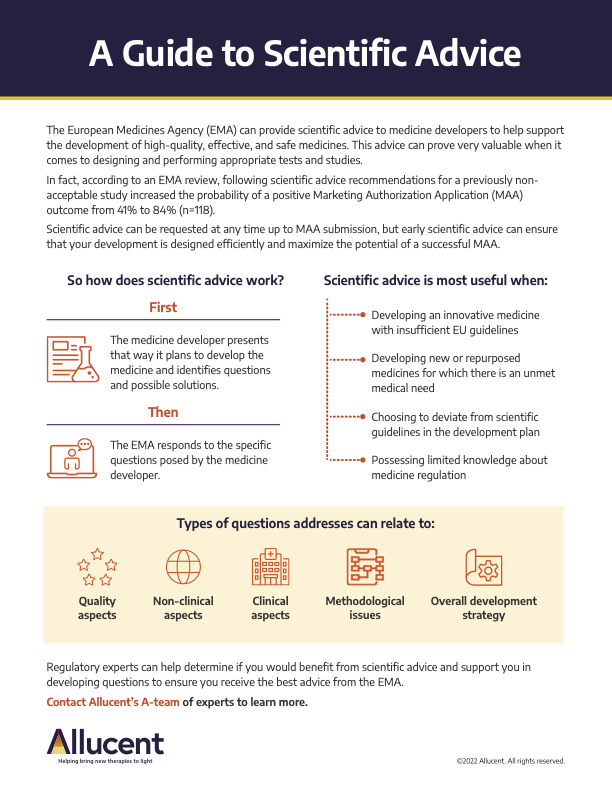A positive outcome for your marketing authorization application (MAA) is not guaranteed. As a result, it is imperative to employ methods to maximize the potential of your MAA and set yourself up for success.
Can asking the right questions increase the chances of your trials success?
The European Medicines Agency (EMA) provides valuable scientific advice (or protocol assistance for orphan medicinal products) to medicine developers. In fact, at any stage of a medicine’s development, it is possible to ask for guidance and direction from the EMA regarding best practices and study designs.
Following these scientific advice recommendations significantly increases the probability of a successful MAA by ensuring developers perform appropriate tests and studies and helping to avoid major objections regarding the testing when it comes time for marketing authorization application (MAA) evaluation.
According to an EMA review, following scientific advice recommendations for a previously non-acceptable study increased the probability of a positive (MAA) outcome from 41% to 84% (n=118).
Seeking Scientific Advice Outside of the European Union
While the EMA provides scientific advice for clinical trials conducted inside the European Union, there is the opportunity to seek similar guidance and protocol assistance in the United States with the Food and Drug Administration. The two agencies work in parallel to provide specific advice to sponsors in a way that increases dialogue from the beginning of the product lifecycle.
The EMA and FDA both believe in providing a deeper understanding of the bases of regulatory decisions to optimize product development and avoid unnecessary testing replication or diversification. At times, it can be helpful to engage with external experts to help navigate the regulatory strategy and roadmap for a more successful drug development journey.
Learn more about how scientific advice works with our downloadable guide, created by Allucent scientific experts.
Check out our video: A Guide to Scientific Advice

